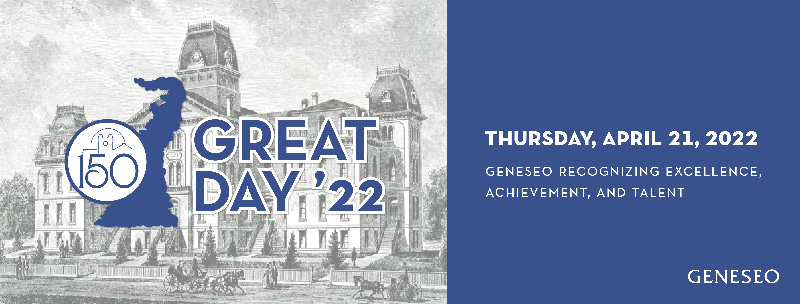
Submission Type
Poster
Start Date
4-21-2022
Abstract
Research on microaggressions has identified three main types of microaggressions experienced by members of underrepresented groups on college campuses. Researchers have identified similarities and differences between groups in the types of microaggressions experienced and the outcomes associated by these experiences that have implications for students’ success and well-being. Different personal and institutional strategies have been found to help buffer targets when experiencing microaggressions. Our study was designed to understand how identity impacts the experiences of microaggressions, their implications, and the types of support that would be most helpful against the experiences of microaggressions on a predominantly White, heterosexual campus. Undergraduate students were recruited to participate in an interview study addressing experiences of underrepresented students regarding campus climate and microaggressions. Forty-three students completed in-depth interviews lasting approximately 30-40 minutes over Zoom. Participants first completed a demographic questionnaire. Interviews addressed two major themes: student experiences with the campus climate and microaggressions. Frequency of each theme across transcripts were noted, examining prevalence/frequency of each theme by identity. Important themes and patterns emerged: Students reported all three types of microaggressions, with microinsults being the most common. Three major categories of outcomes emerged (emotional/psychological, social/self, behavioral), with emotional being most common. Two major categories of recommended support emerged (effective allyship behaviors: speaking out, taking action; institutional changes: more BIPOC and LGBTQIIA+ faculty/staff representation, alignment of values with structure, accountability). Patterns by identity are discussed.
Recommended Citation
Saylor, Katrina; Acevedo, Joelmy; and George, Abigail, "045 -- Understanding Underrepresented Students' Experiences with Microaggressions on a Predominantly White College Campus" (2022). GREAT Day Posters. 10.
https://knightscholar.geneseo.edu/great-day-symposium/great-day-2022/posters-2022/10
045 -- Understanding Underrepresented Students' Experiences with Microaggressions on a Predominantly White College Campus
Research on microaggressions has identified three main types of microaggressions experienced by members of underrepresented groups on college campuses. Researchers have identified similarities and differences between groups in the types of microaggressions experienced and the outcomes associated by these experiences that have implications for students’ success and well-being. Different personal and institutional strategies have been found to help buffer targets when experiencing microaggressions. Our study was designed to understand how identity impacts the experiences of microaggressions, their implications, and the types of support that would be most helpful against the experiences of microaggressions on a predominantly White, heterosexual campus. Undergraduate students were recruited to participate in an interview study addressing experiences of underrepresented students regarding campus climate and microaggressions. Forty-three students completed in-depth interviews lasting approximately 30-40 minutes over Zoom. Participants first completed a demographic questionnaire. Interviews addressed two major themes: student experiences with the campus climate and microaggressions. Frequency of each theme across transcripts were noted, examining prevalence/frequency of each theme by identity. Important themes and patterns emerged: Students reported all three types of microaggressions, with microinsults being the most common. Three major categories of outcomes emerged (emotional/psychological, social/self, behavioral), with emotional being most common. Two major categories of recommended support emerged (effective allyship behaviors: speaking out, taking action; institutional changes: more BIPOC and LGBTQIIA+ faculty/staff representation, alignment of values with structure, accountability). Patterns by identity are discussed.


Comments
Sponsored by Monica Schneider